
The federal government and Vanderbilt University have a long history of partnering to foster advancements in education and research. This collaboration takes various forms, including financial support for our students – through programs like the Federal Pell Grant or campus-based student aid programs – and through research funding support in science, engineering, social science, and the humanities. More than funding, the federal government also sets policy that impacts the university’s ability to recruit and retain the best and brightest students and conduct world-class research.
Federal Support at Vanderbilt
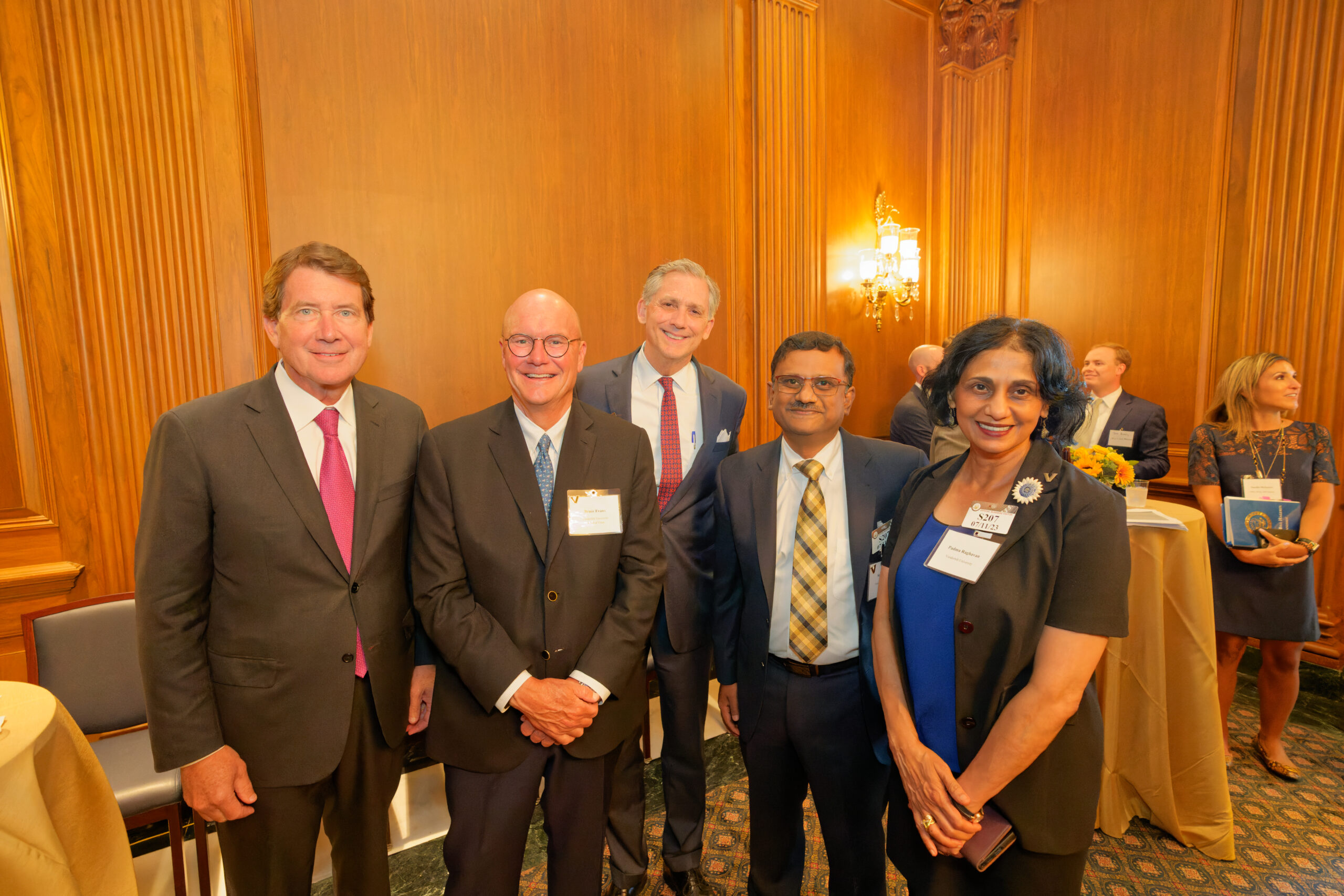
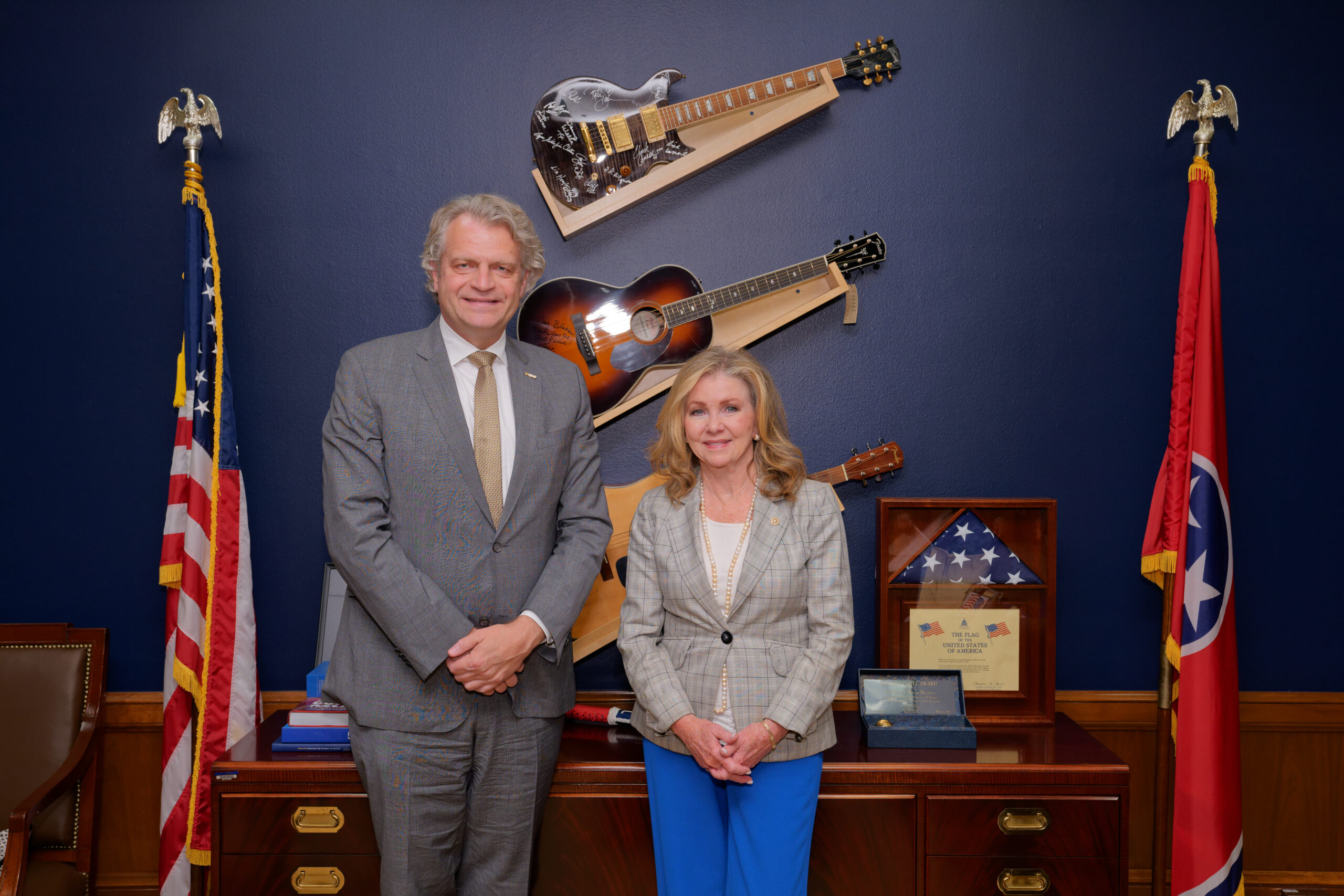
-
Research at Vanderbilt
Vanderbilt University receives significant support from a range of federal agencies that provide vital funding for research and innovation across multiple disciplines. These agencies include:
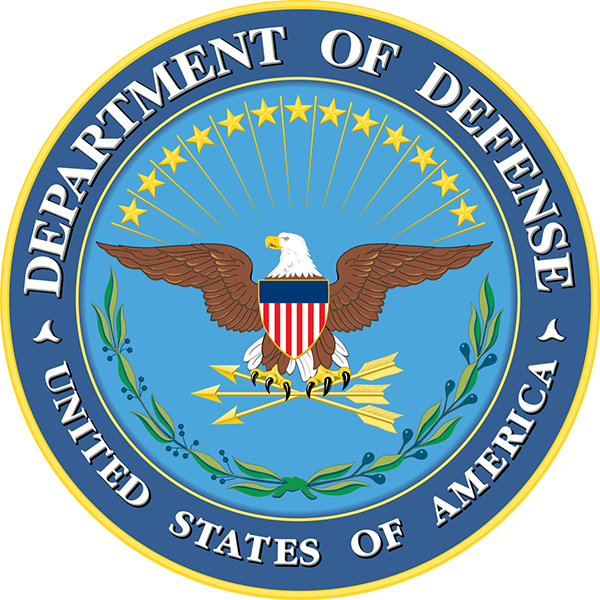
Department of Defense
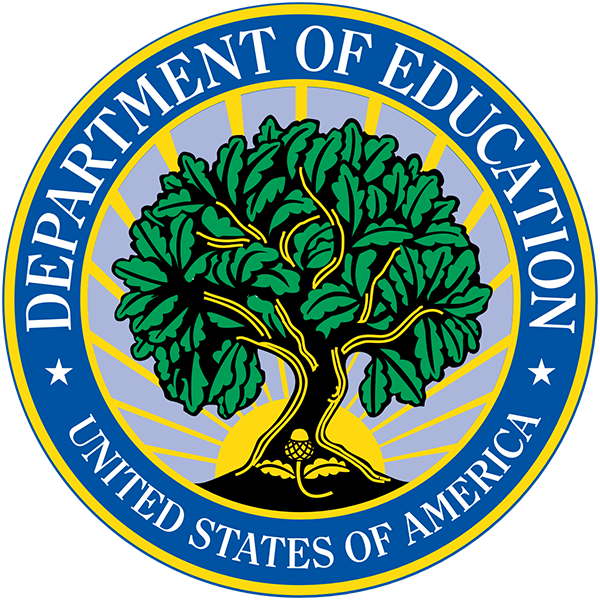
Department of Education
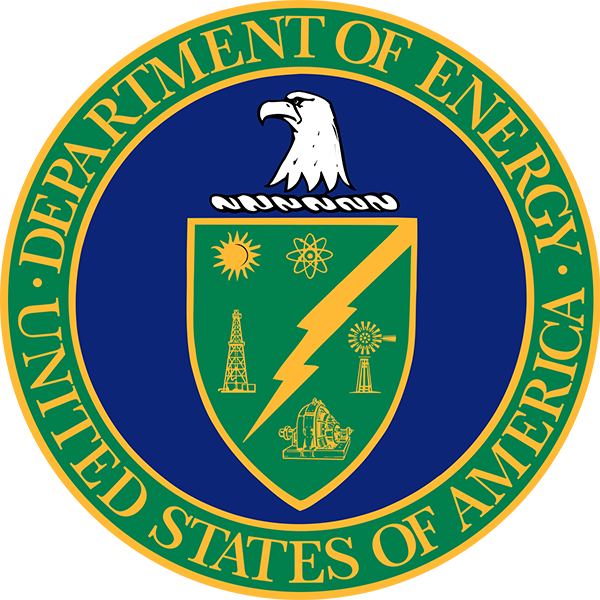
Department of Energy
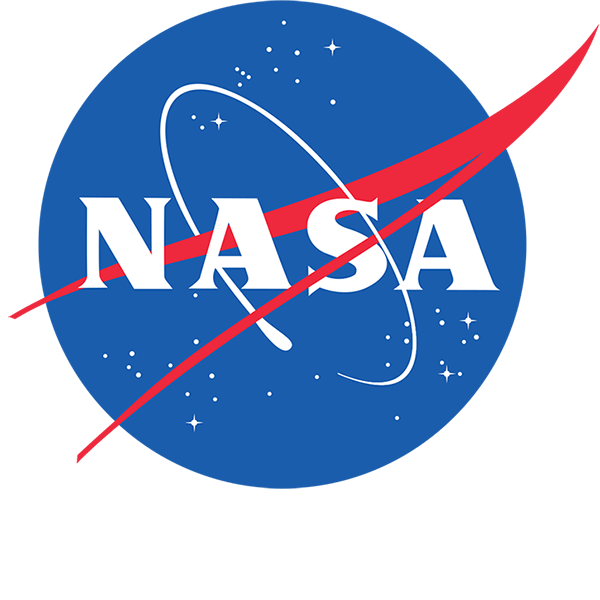
NASA

National Endowment for the Humanities
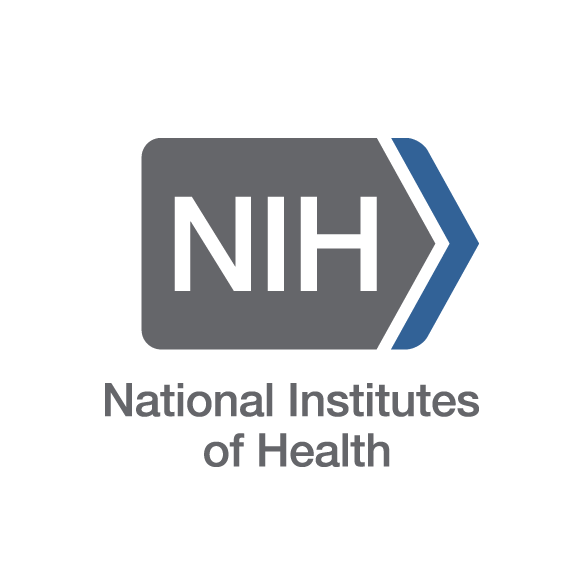
National Institutes of Health
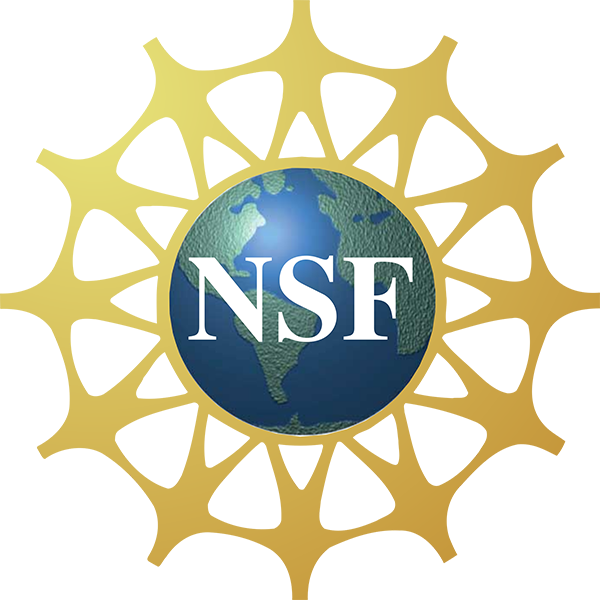
National Science Foundation

Smart Mobility
One-pagers outlining federal support and its impact at Vanderbilt University are available upon request.
-
Other Federal Support at Vanderbilt
Beyond major research funding agencies, Vanderbilt University benefits from an array of federal programs that support areas such as:
- HRSA - Nursing Workforce Development Funding at Vanderbilt
- Title VI International Education Funding at Vanderbilt
- Vanderbilt College Access and Affordability
- Artificial Intelligence Research at Vanderbilt
One-pagers outlining federal support and its impact at Vanderbilt University are available upon request.
-
More Information About Research at Vanderbilt
-
Access and Affordability at Vanderbilt
Through Opportunity Vanderbilt, we meet 100% of every student’s demonstrated financial need, without loans.
Our resolve to make a Vanderbilt education accessible and affordable to all admitted students is stronger than ever. Both our need-based and merit-based scholarships reflect our dedication to making a Vanderbilt education possible.
Learn more
Advocacy
View letters and statements from Vanderbilt and associations and coalitions to which Vanderbilt belongs on federal advocacy priorities.
-
2025 Letters and Statements
- Funding for Office of Science: Letter from Energy Sciences Coalition urging Congress to appropriate $8.6 billion for the Department of Energy Office Science in FY 2026. (December 24, 2025) View Letter (PDF)
- Funding for IES: Letter from Friends of IES urging Congress to provide the highest possible amount for the Institute of Education Sciences in the final FY 2026 appropriations bill. (November 24, 2025) View Letter (PDF)
- Funding for NIH: Letter from United for Medical Research urging congressional leaders to pass a FY 2026 Labor-HHS Appropriations bill with robust funding for NIH as soon as possible. (November 21, 2025) View Letter (PDF)
- Funding for Office of Science: Letter from Energy Sciences Coalition urging Congress to appropriate $9.5 billion for the Department of Energy Office Science in FY 2027. (November 4, 2025) View Letter (PDF)
- NDAA Provisions: Letter from the Coalition for National Security Research providing comments on provisions in the House and Senate NDAAs (H.R. 3838 and S. 2296). (October 30, 2025) View Letter (PDF)
- Funding for NIH and ARPA-H: Letter from the Ad Hoc Group for Medical Research urging Congress to appropriate $47.2 billion for the NIH and funding for ARPA-H in FY 2026. (October 27, 2025) View Letter (PDF)
- Funding for NSF: Letter from the Coalition for National Science Funding urging Congress to fund the NSF at the highest possible level in FY 2026. (September 9, 2025) View Letter (PDF)
- Funding for IES: Letter from Friends of IES urging Congress to appropriate at least $900 for the Institute of Education Sciences in FY 2026. (April 7, 2025) View Letter (PDF)
- Funding for the NIH: Letter from the Ad Hoc Group for Medical Research urging Congress to appropriate $51.3 billion for the NIH in FY 2026. (April 7, 2025) View Letter (PDF)
- Funding for the NIH: Letter from United for Medical Research urging Congress to appropriate $51.3 billion for the NIH in FY 2026. (March 24, 2025) View Letter (PDF)
- Funding for the NSF: Letter from the Coalition for National Science Funding urging Congress to appropriate $9.9 billion for the NSF in FY 2026. (March 13, 2025) View Letter (PDF)
- Funding for NASA: Letter from the Coalition for Aerospace and Science urging Congress to appropriate at least $27.18 billion for NASA in FY 2026. (March 10, 2025) View Letter (PDF)
- Funding for Office of Science: Letter from the Energy Sciences Coalition urging Congress to appropriate $9.5 billion in FY 2026 for DOE Office of Science. (March 4, 2025) View Letter (PDF)
- Welcome to Congress: Letter from the Ad Hoc Group for Medical Research welcoming the new Congress and urging Congress to prioritize investment in the NIH. (February 3, 2025) View Letter (PDF)
-
2024 Letters and Statements
- Funding for IES: Letter from the Friends of IES urging Congress to appropriate include the highest possible amount for the Institute of Education Sciences top line in the final bill (November 22, 2024) View Letter (PDF)
Funding for the NIH: Letter from the Ad Hoc Group for Medical Research urging Congress to finalize the Labor, Health and Human Services, Education, and Related Agencies spending bill by the end of the calendar year and fund the NIH in FY 2025 at $48.9 billion. (November 18, 2024) View Letter (PDF)
- Funding for the NIH: Letter from United for Medical Research urging Congress to appropriate at least $50 billion in base funding for the National Institutes of Health in FY 2025. (November 18, 2024) View Letter (PDF)
- CREATE AI Act: Letter to congressional leaders from leaders of industry, academia, and civil society urging Congress to pass the Creating Resources for Every American To Experiment with Artificial Intelligence Act (CREATE AI Act). (November 18, 2024) View Letter (PDF)
Funding for DOE Office of Science: Letter from the Energy Sciences Coalition urging Congress to appropriate $8.6 billion in FY 2025 for the DOE Office of Science. (November 1, 2024) View Letter (PDF)
Funding for the NSF: Letter from CNSF urging House and Senate appropriators to fund the NSF in FY 2025 at $11.9 billion. (October 1, 2024) View Letter (PDF)
- Funding for DOE Office of Science: Letter from ESC urging Congress to appropriate $9.5 billion in FY 2025 for DOE Office of Science. (May 13, 2024) View Letter (PDF)
- Funding for the NIH: Letter from United for Medical Research urging Congress to appropriate $51.3 billion in base funding for the NIH in FY 2025. (April 10, 2024) View Letter (PDF)
- Funding for IES: Letter from the Friends of IES urging Congress to appropriate $900 million in FY 2025 for the Institute of Education Sciences. (April 8, 2024) View Letter (PDF)
- Funding for DOE Office of Science: Letter from ESC urging Congress to appropriate $9.5 billion in FY 2025 for DOE Office of Science. (March 19, 2024) View Letter (PDF)
- Letter in support of DOE AI initiatives: Letter from ESC recommending that Congress includes DOE provisions to execute AI initiatives. (March 15, 2024) View Letter (PDF)
- Funding for the NSF: Letter from CNSF urging House leaders to fund the NSF in FY 2025 at $11.9 billion. (March 8, 2024) View Letter (PDF)
- Funding for the NSF: Letter from CNSF urging Senate leaders to fund the NSF in FY 2025 at $11.9 billion. (March 8, 2024) View Letter (PDF)
- Funding for the NIH: Letter from the Ad Hoc Group for Medical Research urging Congress to fund the NIH in FY 2025 at $51.3 billion. (March 13, 2024) View Letter (PDF)
- Funding for the NIH: Letter from United for Medical Research urging Senate leaders to fund the NIH in FY 2024 at $47.7 billion. (February 6, 2024) View Letter (PDF)
- Funding for the NIH: Letter from United for Medical Research urging House leaders to fund the NIH in FY 2024 at $47.7 billion. (February 6, 2024) View Letter (PDF)
- Funding for Institute of Education Sciences: Letter from the Friends of IES urging Congress to fund IES in FY 2024 at the highest possible amount. (February 5, 2024) View Letter (PDF)
- Funding for DOE Office of Science: Letter from the Energy Sciences Coalition urging Congress to appropriate $8.4 billion in FY 2024 for the DOE Office of Science. (January 8, 2024) View Letter (PDF)
-
2023 Letters and Statements
- Funding for National Science Foundation: Letter from the Coalition for National Science Funding urging the Administration to request $16.7 billion for NSF in FY 2025. (November 3, 2023) View letter (PDF)
- Funding for DOE Office of Science: Letter from the Energy Sciences Coalition urging the Administration to request no less than $9.5 billion for the DOE Office of Science in the FY 2025 budget request to Congress. (November 7, 2023) View letter (PDF)
- Funding for DOE Office of Science: Statement from the Energy Sciences Coalition urging the House and Senate Energy and Water Appropriations Subcommittees and the House Science and Senate Energy and Natural Resources Committees to increase discretionary funding allocations and appropriate at least $8.8 billion in FY 2024 for DOE Office of Science, consistent with the FY 2024 President’s budget request and the bipartisan CHIPS and Science Act. (July 25, 2023) View statement (PDF)
- Funding for National Science Foundation: Letter from the Coalition for National Science Funding to the Senate Subcommittee on Commerce, Justice, Science, and Related Agencies signed by Vanderbilt University in support of funding the National Science Foundation at the highest possible amount building on FY23 funding levels. (June 15, 2023) View letter (PDF)
- Funding for National Science Foundation: Letter from the Coalition for National Science Funding to the House Subcommittee on Commerce, Justice, Science, and Related Agencies signed by Vanderbilt University in support of funding the National Science Foundation at the highest possible amount building on FY23 funding levels. (June 15, 2023) View letter (PDF)
- Funding for National Science Foundation: Letter from a coalition of universities to the House and Senate Commerce-Justice-Science Appropriations Subcommittees signed by Vanderbilt University in support of $11.9 billion for the National Science Foundation in FY2024. (April 17, 2023) View letter (PDF)
- Vanderbilt’s Programmatic Funding Priorities for FY2024: Letter from the Office of Federal Relations to Sen. Bill Hagerty (R-TN), our Senate appropriator, outlining the university’s programmatic funding priorities for FY 24. (March 15, 2023) View letter (PDF)
- Funding for Institute of Education Sciences: Letter from the Friends of IES encouraging Congress to provide at least $900 million for IES in the FY 24 Labor, Health & Human Services, Education, & Related Agencies appropriations bill. (March 15, 2023) View letter (PDF)
- Funding for National Science Foundation: Letter from the Coalition for National Science Funding urging Congress to appropriate at least $11.9 billion for the National Science Foundation in FY 24. (March 15, 2023) View letter (PDF)
- Funding for National Institutes of Health: Letter from the Ad Hoc Group for Medical Research to House and Senate Appropriations Committee leaders recommending at least $50.924 billion for NIH’s foundational work in FY 24. (March 14, 2023) View letter (PDF)
- Funding for DOE Office of Science: Letter from the Energy Sciences Coalition urging Congress to appropriate $9.5 billion in FY 24 for DOE Office of Science, as authorized under section 10112 of the CHIPS and Science Act (Public Law 117-167). (March 14, 2023) View Letter (PDF)
-
2022 Letters and Statements
- Funding for NASA: Letter from the Coalition for Aerospace and Science requesting topline funding for NASA at no less than $25.97 billion and the Senate's proposed levels for the Agency's directorates. (December 13, 2022) View letter (PDF)
- Funding for the National Institutes of Health: Letter from United for Medical Research to House and Senate leaders urging passage of an FY 23 omnibus appropriations bill that includes a $2.5 billion increase for NIH. (December 8, 2022) View letter (PDF)
- Funding for Institute of Education Sciences: Letter from the Friends of Institute of Education Sciences asking congressional appropriators to include $844.1 million for IES as part of a final FY 23 appropriations agreement. (November 15, 2022) View letter (PDF)
- Funding for Institute of Education Sciences: Letter from the Friends of Institute of Education Sciences to Office of Management and Budget Director Shalanda Young outlining two recommendations to support IES in FY 24. (November 15, 2022) View letter (PDF)
- Funding for the National Institutes of Health: Letter from the Ad Hoc Group for Medical Research to House and Senate Appropriations Committee leaders urging swift passage of a final FY 23 Labor-HHS-Education spending bill including at least $47.5 billion for the NIH base budget as well as urging members to avoid another continuing resolution and to pass the final FY 23 spending bills by the end of the calendar year. (November 8, 2022) View letter (PDF)
- Funding for the National Science Foundation: Letter from the Coalition for National Science Funding to the leaders of the House and Senate appropriations committees urging them to complete FY 23 appropriations before the end of the year and to fund NSF at the highest level possible, which is $11.9 billion as authorized in the recently passed bipartisan CHIPS and Science Act. (October 27, 2022) View letter (PDF)
- Funding for the National Science Foundation: Letter from the Coalition for National Science Funding to Office of Management and Budget Director Shalanda Young and Office of Science and Technology Policy Director Arati Prabhakar asking them to ensure that the administration requests $15.65 billion in NSF research and education investments in FY 24 as authorized in the CHIPS and Science Act. (October 27, 2022) View letter (PDF)
- Funding for Defense Basic Research: Letter from the Coalition for National Security Research to U.S. Department of Defense Secretary Lloyd J. Austin III requesting the department seek to fund the defense S&T program equal to 3 percent of the overall DOD budget and ensure defense basic research is funded at 20 percent of the defense S&T budget for FY 24. (October 6, 2022) View letter (PDF)
- Funding for DOE Office of Science: Statement from the Energy Sciences Coalition to the Appropriations Committees recommending at least $8.1 billion for the DOE Office of Science for FY 23. (September 28, 2022) View statement (PDF)
- Funding for DOE Office of Science: Statement from the Energy Sciences Coalition to the U.S. Department of Energy and the Office of Management and Budget recommending $9.5 billion for the DOE Office of Science in FY 24, matching the FY 24 authorized funding level in the CHIPS and Science Act. (August 11, 2022) View statement (PDF)
- Funding for DOE Office of Science: Letter from the Energy Sciences Coalition thanking Congress for its strong, bipartisan support of the U.S. Department of Energy (DOE) Office of Science in FY 22, and urging Congress to appropriate at least $8.8 billion in FY 23 for the DOE Office of Science, an increase of 18 percent above FY 22 and consistent with the bipartisan House and Senate DOE Science for the Future Act. (June 14, 2022) View letter (PDF)
- Funding for NASA: Letter from the Coalition for Aerospace and Science (CAS) to the leadership of the House and Senate Subcommittees on Commerce, Justice, Science and Related Agencies Committee on Appropriations requesting Congress appropriate at least $27.84 billion for the National Aeronautics and Space Administration for FY 23. (May 18, 2022) View letter (PDF)
- Funding for the National Institutes of Health: Statement from the Ad Hoc Group for Medical Research to lawmakers recommending a program level of at least $49.048 billion for the NIH base budget for FY 23, and strongly urges lawmakers to ensure that any funding for the new Advanced Research Projects Agency for Health supplements the $49 billion recommendation for NIH's base budget, rather than supplant the essential foundational investment in the NIH. (May 10, 2022) View statement (PDF)
- Funding for the National Science Foundation: Letter from the Coalition for National Science Funding to the Senate and House Subcommittees on Commerce, Justice, Science, and Related Agencies Committee on Appropriations recommending at least $11 billion for the National Science Foundation in FY 23. (April 7, 2022) View letter (PDF)
- Funding for Institute of Education Sciences: Letter from Friends of IES, a coalition of organizations committed to supporting the essential role of the Institute of Education Sciences (IES), to the Senate and House Appropriations Subcommittees on Labor, HHS, Education, and Related Agencies, requesting at least $815 million for IES in FY 23. (April 7, 2022) View letter (PDF)
- Funding for DOE Office of Science: Statement from the Energy Sciences Coalition thanking Congress for its strong support of the U.S. Department of Energy Office of Science in FY 22, and urging Congress to appropriate at least $8.8 billion in FY 23. (March 28, 2022) View statement (PDF)
- Funding for Pell: Letter from more than 65 leaders of Tennessee’s colleges and universities to the Tennessee congressional delegation urging them to make an affordable, high-quality college education more attainable for students by doubling the maximum Pell Grant award and permanently indexing the grant to inflation to ensure that its value will no longer diminish over time. (January 25, 2022) View letter (PDF)
Lobbying Disclosure
As an institution that employs registered federal lobbyists to advance and safeguard its considerable interests in the nation’s capital, Vanderbilt University is required to file quarterly disclosure reports with the House and Senate detailing lobbying activities and associated expenses. We are also subject to sweeping rules severely restricting gifts and meals for covered Executive Branch officials, Members of Congress, and congressional staff. There are substantial civil and criminal penalties for violations of these ethics rules and failing to file lobbying reports in a timely and accurate manner. These restrictions apply to all Vanderbilt University employees, faculty, and staff and we ask for your continued cooperation with the following internal guidelines, which are designed to reduce the possibility of inadvertently violating the rules. These guidelines are based on analysis prepared by the American Council on Education.
We appreciate your assistance in distributing this memorandum and the accompanying form to faculty and staff as appropriate.
-
Disclosure
While the majority of the lobbying activity in which Vanderbilt University engages is conducted by the Office of Federal Relations in Washington, DC, Vanderbilt has historically encouraged faculty and staff to communicate with our representatives on Capitol Hill and in Executive Branch agencies on issues of particular concern to them and the university – sometimes individually, but often through their professional organizations. This communication could be in person, over the phone/virtually, or in writing.
We are not seeking to end this practice – indeed, Members of Congress and their staff are keenly interested in meeting with Vanderbilt experts on a range of issues, from financial aid to research priorities. Furthermore, our Federal Relations staff relies on our campus experts to illustrate and explain our federal priorities. Our faculty and administrators have tremendous credibility and are consistently Vanderbilt’s best representatives in meetings with federal policymakers.
However, considering the ethics rules, lobbying activity by any Vanderbilt University employee on behalf of the university or using university resources (including time, computers, email addresses, etc.) must be documented and reported.[i] Lobbying activities[ii] generally include a communication with a covered official asking for specific action. Communications can be oral or written and include in-person or virtual meetings, telephone calls, letters, and emails. Covered officials include covered Executive Branch officials,[iii] Members of Congress, or congressional staff; program officers and managers are generally not covered officials. A specific action could include asking for federal funding, requesting specific legislative action, or attempting to influence the position of a federal official on an issue pending before Congress or the Executive Branch. You may reference the university policy on Lobbying Activities for further information.
[i] Required reporting does not include lobbying activities by students.
[ii] For additional information, please refer to the “lobbying activities” definition found in [2 U.S.C. Sec. 1602] of the Honest Leadership and Open Government Act of 2007 [P.L. 110-81, 2 U.S.C. Sec. 1601 et seq.].
[iii] “Covered Executive Branch official” includes: the President, the Vice President, Officers and employees of the Executive Office of the President, any official serving in an Executive Level I through V position, any member of the uniformed services serving at grade O-7 or above, and any Schedule C (political) employees. It does not typically include program managers or officers.
Lobbying activities by university employees in their capacity as private citizens and not using Vanderbilt resources do not need to be reported.
Faculty and staff are asked to report lobbying activities by completing the following Lobbying Disclosure Form and returning it to Alex Shea in the Division of Government and Community Relations within seven days of the lobbying activity and no later than the following deadlines, so that it can be included in the university’s quarterly lobbying disclosure reports:
- April 10th – for lobbying activities that take place between January 1 and March 31
- July 10th – for lobbying activities that take place between April 1 and June 30
- October 10th – for lobbying activities that take place between July 1 and September 30
- January 10th – for lobbying activities that take place between October 1 and December 31
The form is intended to capture the following information:
- the date of all such meetings or communications;
- who the meeting or communication was with;
- the subject discussed (e.g., “funding of AI research” or “amending the immigration bill to promote access by foreign students” or “increasing the budget of the National Endowment for the Humanities”);
- the approximate length of time of each meeting; and
- the costs associated with each meeting, including travel costs to Washington, DC (or a pro rata share of those costs when the travel involves other, non-lobbying activities), if appropriate, and a portion of salary and benefits.
In addition, university faculty and staff are encouraged to notify the Office of Federal Relations before, if possible, they engage in federal lobbying activities on behalf of the university. Federal Relations staff are happy to help arrange meetings and provide guidance on the most effective way to communicate a message to federal lawmakers or their staff.
Vanderbilt University conducts its advocacy activities in a very transparent and professional manner; considering the ethics rules, it is essential that we carefully and fully report all such activities by the university and its employees to the House and Senate.
[i] Required reporting does not include lobbying activities by students.
[ii] For additional information, please refer to the “lobbying activities” definition found in [2 U.S.C. Sec. 1602] of the Honest Leadership and Open Government Act of 2007 [P.L. 110-81, 2 U.S.C. Sec. 1601 et seq.].
[iii] “Covered Executive Branch official” includes: the President, the Vice President, Officers and employees of the Executive Office of the President, any official serving in an Executive Level I through V position, any member of the uniformed services serving at grade O-7 or above, and any Schedule C (political) employees. It does not typically include program managers or officers. -
Congressional Rules Related to Gifts, Meals, and Travel
- Vanderbilt University, and individuals employed by the university and acting on our behalf, cannot provide gifts to Members of Congress and their staff with a value in excess of $10. This eliminates virtually any souvenir that might be offered at a meeting, conference, or special event, such as a t-shirt, hat, or coffee mug. Please check with the Office of Federal Relations if you have any questions.
- Vanderbilt University cannot pay for any meal, food, or drink with a Member of Congress or their staff. While there are certain prescribed exceptions, please check with the Office of Federal Relations in advance of extending an invitation so we can ensure that the meal is not otherwise prohibited.
- Vanderbilt University can invite Members of Congress and their staff to certain public events at which food is served, and for which the Member's or staff's presence could be considered directly related to their official duties. Please alert the Office of Federal Relations before such invitations are extended so we can verify the event is not prohibited and can coordinate the many requests that Vanderbilt makes of our Congressional delegation and other Members of Congress.
- Vanderbilt University cannot provide Members of Congress or their staff with complimentary tickets to sporting events, concerts, or other activities for which an admission fee is charged. All Members and their staff must pay the face value of the ticket. We ask that any requests for tickets from Members of Congress or their staff, or invitations to attend a game or performance, be directed to the Office of Federal Relations for response.
- Finally, there are complex rules concerning sponsorship of travel (transportation and lodging) involving Members of Congress and their staff. Vanderbilt University typically does not sponsor congressional travel, but it is an area of great sensitivity with significant advance warning necessary for paperwork and approval. All requests for travel sponsorship involving Members of Congress or their staff should be handled through the Office of Federal Relations to ensure compliance with these ethics rules.
Thank you for your assistance in ensuring Vanderbilt complies with these rules. Please feel free to distribute this message to your colleagues as needed.
-
Federal Grants and Lobbying
As a reminder, the use of federal grant dollars to engage in or subsidize lobbying remains strictly prohibited. Section 1352 of Title 31 of the United States Code prohibits recipients of federal grants, loans, or cooperative agreements from using federally appropriated funds to pay any person for influencing or attempting to influence any officer or employee of an agency, a Member of Congress, or congressional staff in connection with the awarding, extension, continuation, renewal, amendment, or modification of a federal grant. This prohibition applies to both direct lobbying by the recipient and indirect support through payments to third parties.
Thank you for your assistance in ensuring Vanderbilt complies with these rules. Please feel free to distribute this message to your colleagues as needed.
-
Questions? Contact:
Christina West
Associate Vice Chancellor for Federal Relations
christina.west@vanderbilt.edu
202-216-4370Alex Shea
Director of Business Operations, Division of Government and Community Relations
alex.shea@vanderbilt.edu
202-216-4373